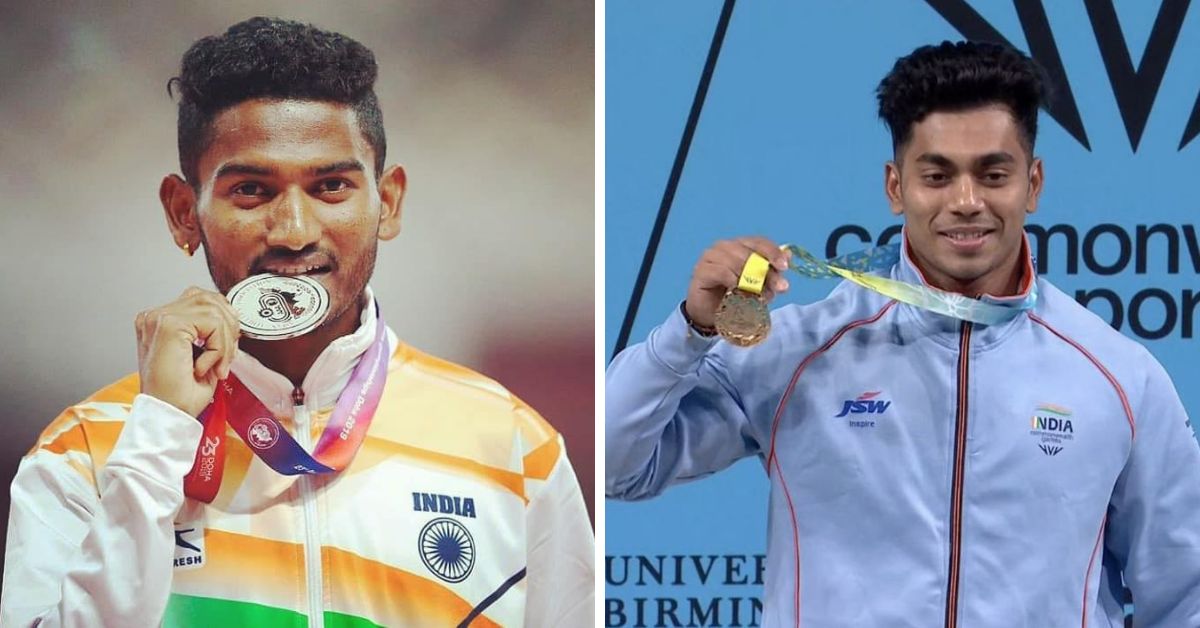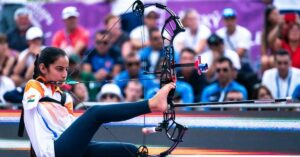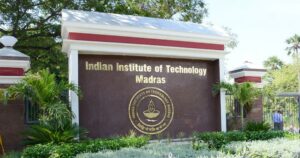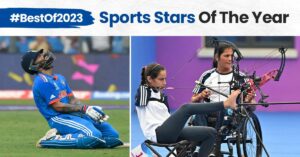India’s CWG Success Against All Odds: Counting Our Medals & Making Them Count
How can we make our athletes' international medals meaningful to every Indian? A system-wide approach is key, say Nandan Kamath and Desh Gaurav Sekhri from Sports and Society Accelerator.

#MakingSportWork: We celebrate the potential of sport to build a #BetterIndia with opinion pieces, stories and profiles of how sport can improve the lives of every Indian. Read more from this exclusive series by The Better India and Sports and Society Accelerator here.
Victories and medals bring to the fore the life stories of their winners, shining a light on the challenges they have overcome on their paths to success. This was evident at the recently concluded Commonwealth Games in Birmingham. Achinta Sheuli’s incredible journey, Avinash Sable being ‘weeded out’ of a talent identification programme as a youngster, and why Tejaswin Shankar needed the help of Delhi’s High Court bar before conquering Birmingham’s high jump bar made for compulsive reading.
These proved to be an unmissable backdrop to India’s story at the quadrennial event. The steady upward trajectory of success for India was reinforced at this edition with many first-time medalists and athletes succeeding in a variety of disciplines, including lawn bowls, judo and athletics. These are positive indicators of a promising future for Indian elite sports.
India’s Avinash Sable bettered his own national record by almost a second to win the silver medal in the men’s 3000m steeplechase at the Commonwealth Games 2022.@avinash3000m @birminghamcg22 #CommonwealthGames2022 #Birmingham22 #SilverMedal #TheBetterIndia pic.twitter.com/5M1dWq1smn— The Better India (@thebetterindia) August 6, 2022
While achievements at major sporting events remind us of the soft power and great joy we derive from the international successes of our compatriots, they also give pause for thought. What is sport’s role in our society? What more can we do with it? Awakening the system to the full potential of sports, and the role it can play in building a healthier, fitter, more inclusive, and empowered India, is a project we must all get behind.
The health of Indian sports is, for some undefined reason, measured primarily by the country’s final standing on the medal table. The National Sports Awards points system is, naturally, designed to tabulate international victories. It is not uncommon to hear stories of parents pleading with PE teachers and coaches to develop their still-toddler wards into Olympic champions. These can be read as positive trendlines. However, to get the most out of what sports have to offer us, we must expand the measure of sporting success beyond medals alone, and recognise that sport does not have only one story to tell.
https://t.co/E1mKgNXnQt Video: Mirabai Chanu Creates History, Wins India’s 1st Medal at Tokyo Olympics pic.twitter.com/ix4dbUIBDh— The Better India (@thebetterindia) July 24, 2021
It is difficult to justify the extent of public spending on elite sports if we do not take a wider view of its role in society. While success contributes to national confidence and identity, it must also play an ambassadorial role in the campaigns for universal physical literacy and universal access, recognising that every Indian must be presented the opportunity to live an active and healthy life as a matter of right.
These goals of universality play vital social roles. They require a system-wide approach that identifies and addresses the fault lines in our population’s access to play, movement, and activity. The anecdotal success of elite athletes – achieving against the odds, as they often do – and survivorship bias can paper over these cracks. They mask the reality of a vast swathe of our population that will never experience the joy of sport or have the chance to build a healthy relationship with their body through movement, activity and play.
The goal of delivering universality of opportunity and experience not only gives elite sports the chance to find their wider social purpose but also demands a multi-pronged approach from the system. Public and private participants will have to act together on many fronts, including good governance, support structures for access and progression at the population scale, enabling livelihoods and sustainability, ensuring safe sport, integrating rights-based approaches into decision making and finding a way for physical literacy to be embedded in education.
#LovlinaBorgohain ?
Her parents were pitied for having three daughters. She trained with borrowed gloves. And created history by winning India’s 2nd medal at #TokyoOlympics! pic.twitter.com/yy418Sai3Q— The Better India (@thebetterindia) July 30, 2021
Several states have launched programmes and policies that could potentially position sports as a tool for social inclusion and empowerment. Odisha has launched several schemes that take a 360-degree approach to making sports a part of the State’s culture and empower the youth, including the first Olympic Values Education Programme in the country.
The Haryana Sports Policy among its goals has envisioned the use of sports as a tool for social and economic development, and the promotion of positive values at home and abroad. Mizoram meanwhile in its Sports Policy has a stated goal of working to use sports for the differently-abled, older persons and women. Through its policy, it is working to increase access by reducing barriers and encouraging participation.
Additionally, Mizoram plans to run affirmative-action programs to increase participation, as well as make sporting infrastructure more ‘friendly’. Jharkhand has launched the SAHAY (Sports Action Towards Harnessing Aspiration of Youths) scheme to motivate the youth of Naxal-affected areas towards a positive life by giving them an identity through sports. These are just a few examples of a growing number of such initiatives that are driving awareness and participation across the country.
Broadly, the objectives of these programmes include the development of athletes as leaders and role models; leveraging sports programming intentionally for local, state and national social development; asking sport-related sectors to incorporate social development objectives; using sports events to benefit host communities and local economies; and building a spirit of volunteerism, social entrepreneurship and giving back.
This establishes a powerful narrative to build on from national to community levels. The policy structure can target mass participation with a concerted focus on underrepresented segments of society, including gender and disability. The capacity building and skill development within government, social enterprise and civil society initiatives can be enhanced to address access barriers at national, regional, and local levels.
When sports and physical activity are pitted as opponents to academic achievement, both ‘sides’ lose. When they are seen as complementary aspects of a wholesome life, both can win. Using sports to drive activity levels, and promote interactivity and teamwork among diverse groups, can produce healthier, happier, more well-rounded individuals.
The things we measure and what we celebrate also deeply influence our notions of success and meaning. A great precedent for this would be to look at sports through the lens and perspective of what the Annual Status of Education Report (ASER) has done for the education sector.
The ASER, released by leading education non-profit Pratham, is biennially published and is a benchmark national analysis based on a citizen-led household survey that provides nationally representative estimates of children’s schooling status and their foundational reading and arithmetic skills.
As with the measurement of educational outcomes in ASER, a concerted effort is needed to map the status of access to sports and activity levels across the country on a periodic basis. This will help us understand the systemic gaps and monitor progress and the success, or lack thereof, of initiatives targeted at bridging access gaps. Profiling and celebrating the efforts of social entrepreneurs, and initiatives that have selflessly used sport for social change, can result in sport being recognised as a tool each one of us can use to connect with and contribute to the lives of those around us.
With these efforts, as the gates progressively open to a wider population, the talent pool of elite athletes gets wider and deeper. Increasing opportunity puts into play virtuous cycles involving elite success and social goals. The rising tide can then truly lift all boats.
Nandan Kamath & Desh Gaurav Sekhri are Co-Founders of the Sports and Society Accelerator. More about the organisation at www.sports-society.org; Edited by Yoshita Rao
Sources:
This story made me
- 97
- 121
- 89
- 167
Tell Us More
We bring stories straight from the heart of India, to inspire millions and create a wave of impact. Our positive movement is growing bigger everyday, and we would love for you to join it.
Please contribute whatever you can, every little penny helps our team in bringing you more stories that support dreams and spread hope.




















